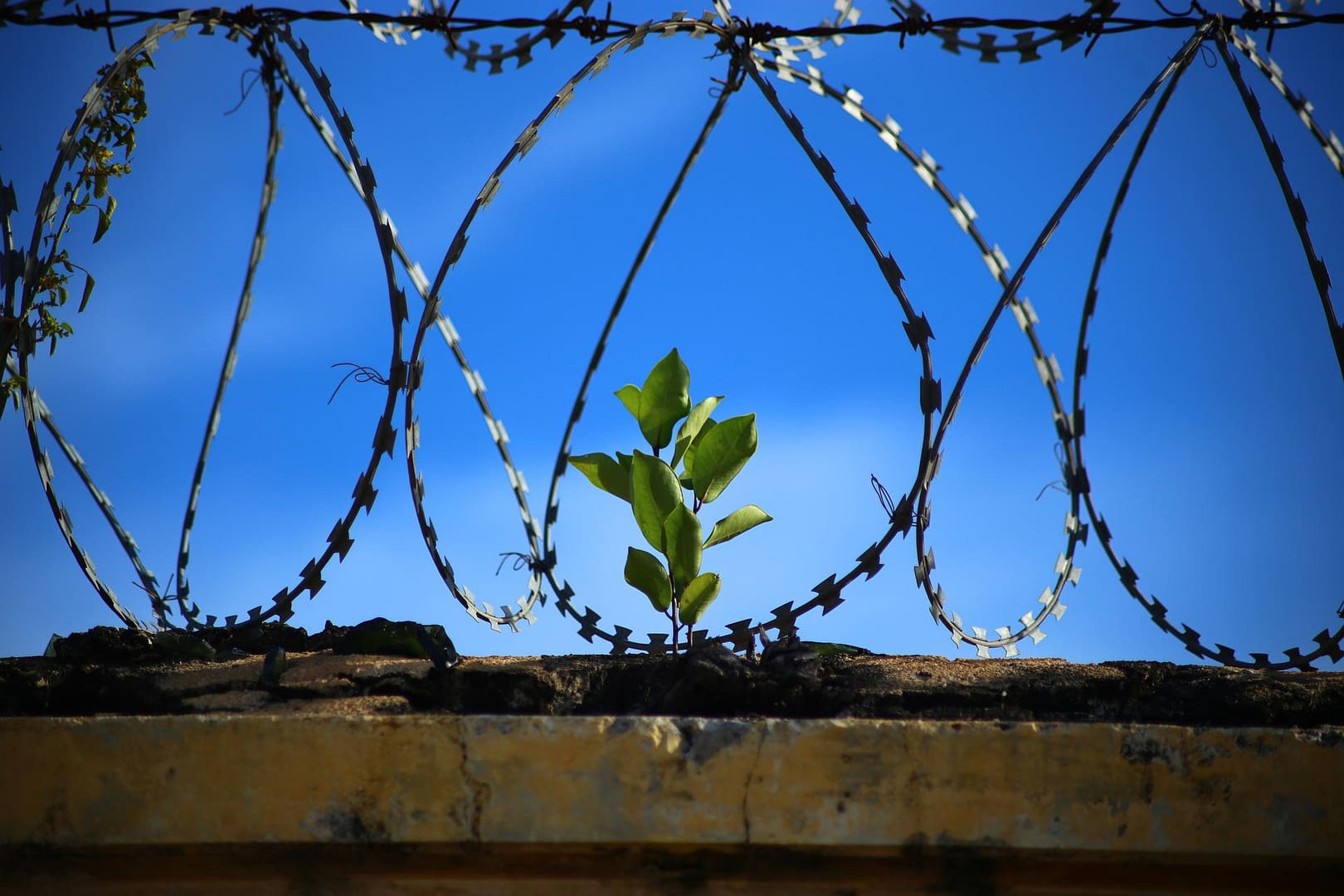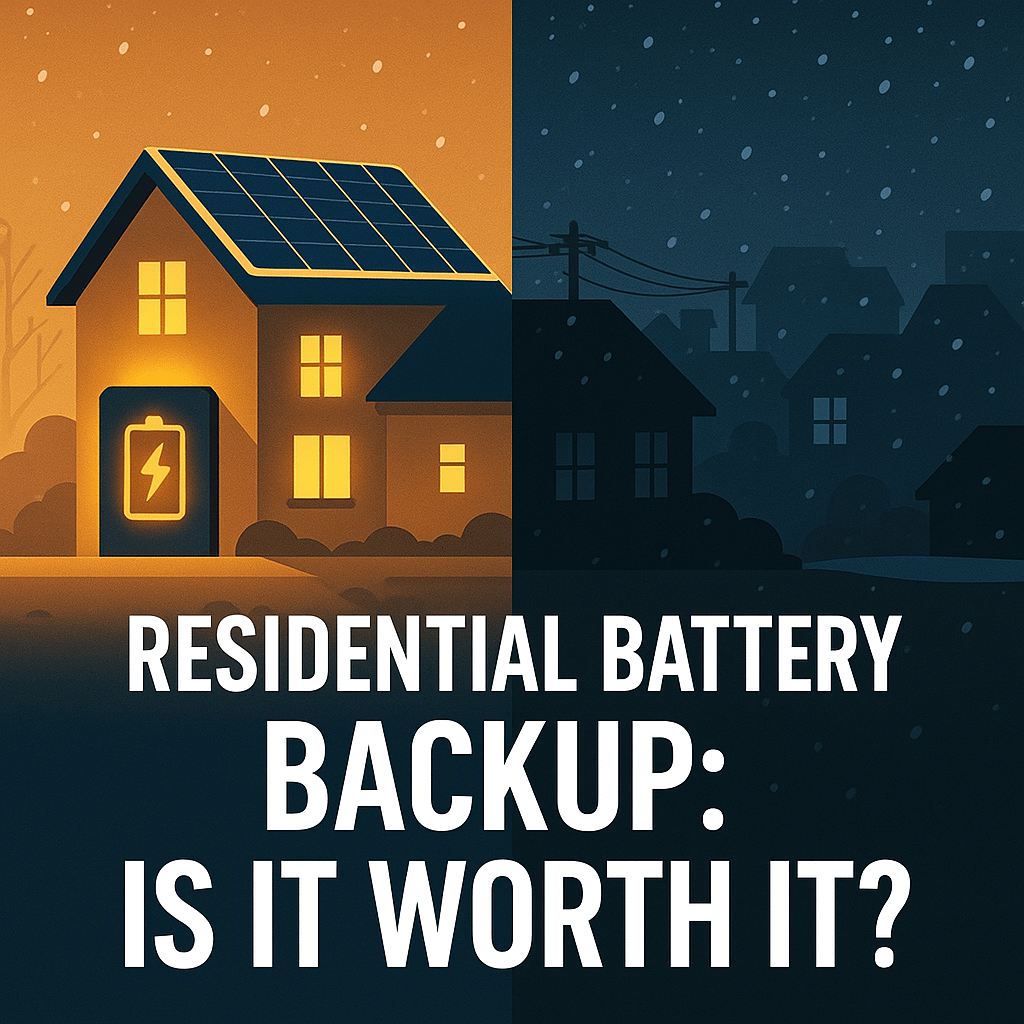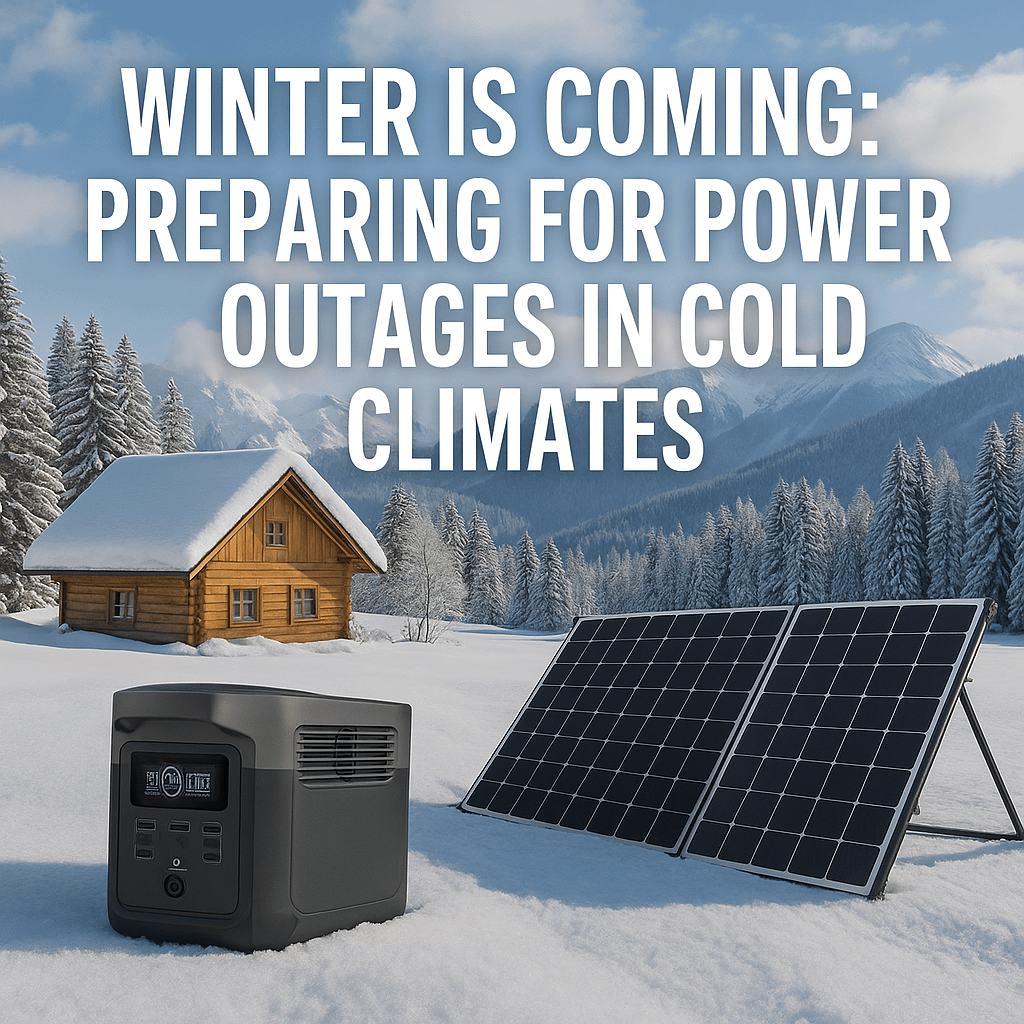Thank you for visiting Evergreen Off-Grid!
So, is it illegal to harvest your own rainwater? In this edition we’re going to answer all your questions about the legality of rainwater harvesting. Including a little history, and the story of guy who actually went to jail for collecting rainwater on his property. Can you collect your own rainwater? Continue reading to find out!
She was a wandress, a drop of free water. She belonged to no man and no city.
-Roman Payne
Why Do We Think Harvesting Water is Illegal?
There’s a chance you found this page by googling some variation of the following question: “Is it legal to collect rainwater?”
Surprisingly, this is one of the most common questions I get when I talk about rain water harvesting. Somehow, it has become enshrined in urban myth that it is illegal to collect rainwater on your own property. Not just against the law. But you can actually go to jail for collecting rain off your own roof… or so the myth goes.
You’ve Got to Be Joking??!
How absurd! Things have gotten out of control if people are going to jail for collecting rain.
I would have just dismissed the question if I hadn’t heard it several times. But also, deep down I felt some subconscious familiarity with this story. When asked if water collection was legal, I’ve had to tell them… I don’t know it’s legal, but I know it’s legal… uh, I’ll get back to you. Well, consider this me getting back to you.
One thing I did know for sure was that people were harvesting rainwater from their rooftops. That much we can figure out just by looking around our neighborhoods and seeing rain barrels connected to down spouts. So, either we have a prolific eco-terrorism problem, or… ok, to be less dramatic… Either we have a bunch of folks unknowingly breaking the law, or there is something else responsible for this common misconception.
To fully grasp our relationship with water rights in America let’s go back to the beginning. Our collective social and legal disagreements over a person’s rights when it comes to water usage began out West. Back East, rainfall was plenty and water resource wasn’t a source of quarrel. But in the unfamiliar and arid conditions out West, the debate over who owns water would begin. Let’s head back to the California Gold Rush in the mid-1800s.
Note: As an affiliate, I earn from qualifying purchases.
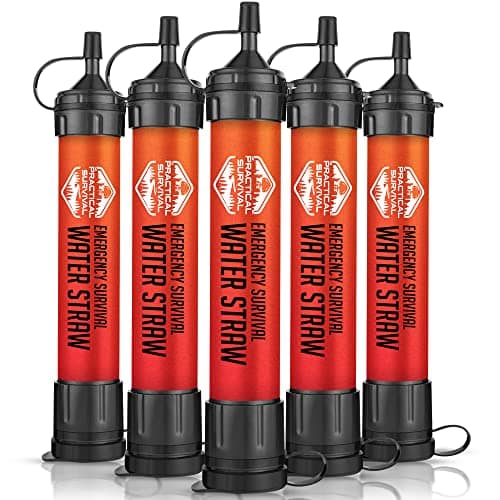
5 High Capacity Emergency Survival Water Straws
$39.98

Redmoon 4Pcs 5L Collapsible Water Container
$18.99
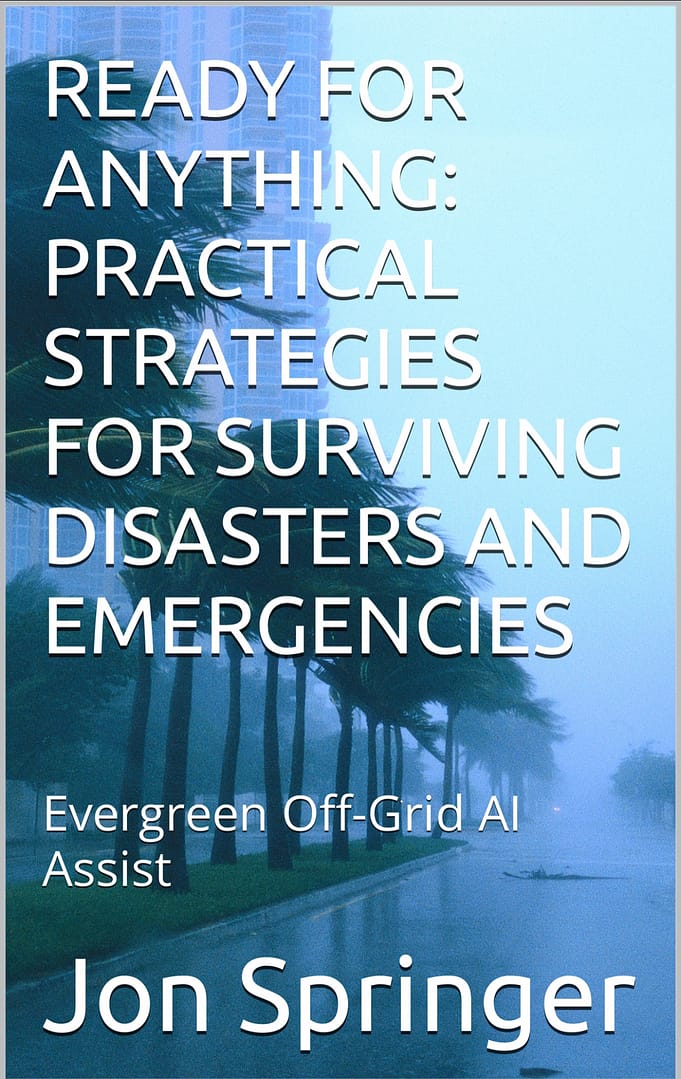
READY FOR ANYTHING: PRACTICAL STRATEGIES FOR SURVIVING DISASTERS AND EMERGENCIES
$15.99
Gold Rush
Imagine being in the Sierra Nevada Mountains in California. The year is 1855. After barely surviving a treacherous journey across the vast interior of the United States a few years back, you’ve been working claims in these mountains, hoping each new day will be the day you strike it rich.
You’ve learned that finding gold in these hills requires massive amounts of water. You wash through mountains of material using the fire hose nature has so conveniently set here, seemingly just for you. Your heart beats a little faster every time a glint of light dances off the rocky stream bed. Your entire focus in this pristine, beautiful landscape is on spotting tiny flakes of metal. Those lucky souls that happen to be looking for needles in haystacks are the stuff of envy.
Prior Appropriation
One morning you wake up to a glorious sunshine. You sit down to a plate of gritty, flavorless pancakes. The pancakes are washed down with some chewy cowboy coffee. Coffee that has the consistency of the sand you discard from your pan.
When you’re finished eating, you head over to your claim to put in a day’s work and notice that the stream you were using to separate gold from soil has slowed to a trickle. You investigate. After traveling upstream a ways, you discover the cause of your plumbing issues. Another miner has diverted YOUR water source to help him with HIS claim!
Who Owns the Water? First Come First Served.
This can’t be! You can’t take my stream! Well, it turns out he can if he was using the resource first. In early Gold-Rush era California, there was no Government capable of exercising any real authority. Justice was often the ruthless sort which is dished out beyond the reach of the law. But in a way, this type of justice settled the law. It became the law. In this case the “law” was settled in favor of first come, first served principles.
Law out West, or anywhere for that matter, was basically a set of agreed upon rules. And in this case, it was generally agreed upon that a miner was allowed to divert water away from its source to support mining operations elsewhere. Back then, this wasn’t seen as destructive. It was seen as progressive.
Note: As an affiliate, I earn from qualifying purchases.

Anker SOLIX F2000 Portable Power Station with Solar Panels
$2,899.00 Original price was: $2,899.00.$1,499.99Current price is: $1,499.99.

Emergency Radio with NOAA Weather Alert, Portable Solar Hand Crank AM FM Shortwave Radio for Survival
$59.99 Original price was: $59.99.$32.39Current price is: $32.39.
Irwin v. Phillips
In 1855, the Supreme Court of the State of California upheld these established mining traditions with their decision in Irwin v. Phillips. A reading of the ruling leaves you feeling like the justices were not fully convinced of the justice they were dispensing. But, having limited options and even less precedent they threaded the needle of justice, attempting to stitch together the fabric of old common law with the realities of these gold mining communities. Peace, and more importantly, progress was priority.
The Government of the United States owned the river and the adjacent territory, according to American Law. Also, this wasn’t a case of folks diverting water from the banks of streams flowing through their property. This was primarily squatters on Federal land trying to turn a buck. Fortunately for the miners, the Government supported their ventures. Distributing water resources throughout the arid region helped serve their greater purpose of settlement and expansion.
Beneficial Use
Once a person has established their claim to a water resource, they were entitled to that resource so long as they put it to “beneficial use”. Basically, this means they had to use the water in their home or for agriculture or eventually electricity generation or other “beneficial uses.”
The first person to claim the water resource was considered to have “senior rights” to it. Subsequent claims were referred to as “junior rights.” Someone with junior rights to a water resource can not infringe on the ability of those with senior rights to fulfill their beneficial use. Or put in other terms, first come, first served.
Underground Water Rights
The epicenter of water rights disputes continued to be located in the West. Issues would later arise after users with “rights” to the water underneath their property pumped too much from the underground aquafers. In these disputes, a plaintiff would complain that a neighbor, sometimes miles away, was depleting the water supply by pumping more than their fair share.
It was eventually resolved that parties with land above the same water body have mutual benefit and access to it for their own reasonable purposes. But the water could not be pumped beyond the property owner’s local, beneficial use.
Some Theories
The “rationale” some people use when theorizing why the government would make rain harvesting illegal is as interesting as it is varied.
Some theorize that by capturing rain from our roof we are preventing it from entering the hydrological cycle. And if we prevent it from entering the hydrological cycle, then we have stolen that ration of water from the people that actually own the resource once it’s in the river or aquifers. I’m not sure if there was ever any truth to this theory. It sounds just so awfully, bureaucratically, perfect that I kind of want it to be true. However, if it ever was true, it isn’t any more.
Others have far more nefarious theories. The most obvious being that the government doesn’t want you to collect water because they want to control you. They want to control the water taps themselves, so to speak. To that I say, eh, maybe. I don’t buy it, but I bet I won’t convince you.
But, Didn’t Some Dude Go to Jail?
The question was always, “didn’t some dude in Oregon go to jail for collecting rainwater?” And it always sounded familiar. And now I know why…
Back in 2015 some outlet did an outstanding job of mega-blasting misinformation that outraged the freshly misinformed. Including me, if I remember correctly.
The headline described an Oregon man that went to jail for collecting rain water on his OWN property!
Outrageous! How can Oregonian politicians sleep at night knowing they have laws on the books imprisoning well intentioned, water collecting, citizens?
He Did What?!!
Upon further investigation, it turns out the details are pretty important in this case. The Oregonian man that did actually serve jail time for “collecting rainwater”, didn’t collect water from his roof. This dude constructed dams on the waterway traversing his property and created 13 million gallons of reservoir for his own recreational purposes. These recreational purposes included stocking his personal body of water with fish. Yes, you read that right.
Not only did he create massive reservoirs, but he was told over the course of several years by law enforcement to let them drain. According to the Oregon Water Resources Department he complied, only to fill them again about a year later.
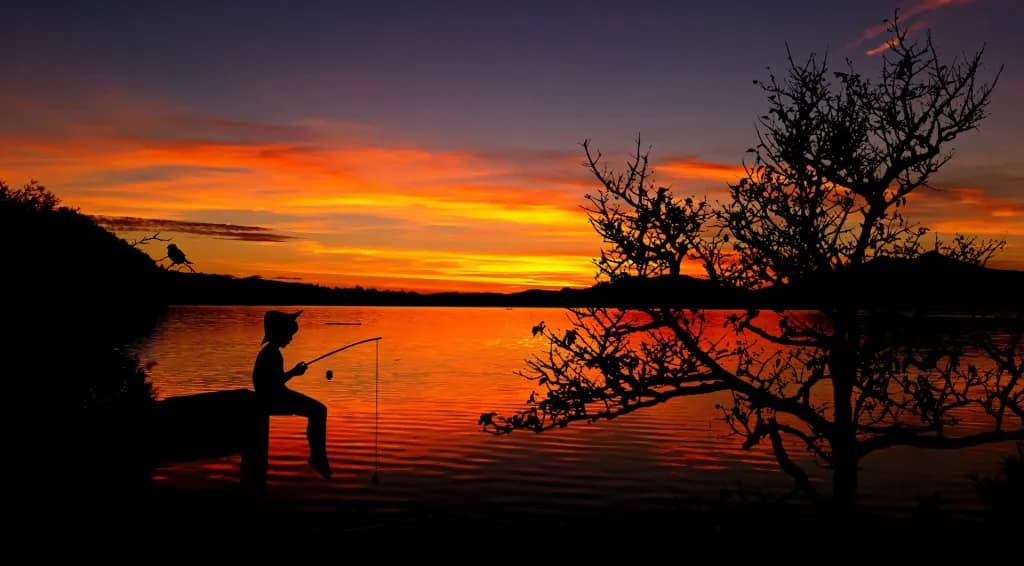
So, It Is Legal to Collect Rainwater?
Yes, collecting rainwater on your property is legal. For those of you that need every loophole eliminated you can thank some guy in Oregon for this one: No, this does not mean you can “collect” 13 million gallons of rain water, stock it with trout, set up a dock and create your own personal aquatic paradise.
You can however collect rainwater off your roof and store it. This is true in every state. Some states have restrictions and some states are so pro rain harvesting that they offer incentives to do so. But even in the strictest of states the restrictions are pretty mild.
For example, Colorado limits the amount you can collect. Some states have additional regulations if you plan to use the collected water for potable purposes. And some require engineering certification if the plan is to connect the water to your plumbing.
To find out if there are any restrictions in your location search your specific locality as there may be unique requirements. If you want a general idea of rain collection requirements state-by-state, check out this article.
Is Rain Harvesting Bad for the Environment?
On the contrary, rain harvesting is good for the environment. Our concrete jungles don’t absorb rainwater very well. As a result, massive amounts of rain collects during storms then tears its way through the landscape, instigating flooding and erosion problems along its path.
If we collect more water before it hits our impervious concrete surfaces we can reduce the amount of this destructive run-off during storms. If we capture the water when it rains, we can then return it to the earth when the soil is dry and actually able to absorb the rainwater. This is one of many reasons you should start collecting water off of your roof today!
Note: As an Amazon Associate I earn from qualifying purchases.
Learn More!
Water collection is good for the environment, can save you money and is easy to do. Stay tuned, join our Off-Grid Community and we’ll teach you all you need to know about rainwater harvesting. Please contact us and let us know what you want to learn about! Or, drop a comment below. We’d love to hear from you! info@evergreenoffgrid.com

